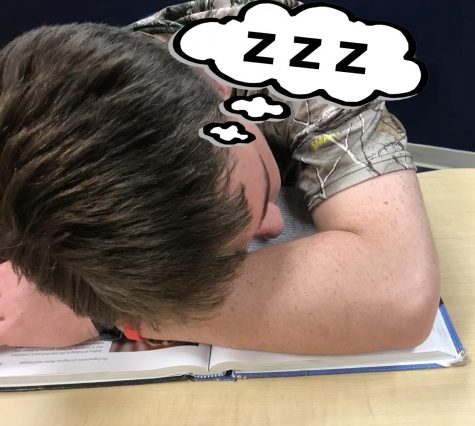High schoolers are not catching their Zs
From Issue 2
These days, almost everyone appears to be sleep deprived. It takes minimal effort to spot the differences between a well-rested, energetic person and his drowsy, droopy-eyed other. According to the National Sleep Foundation, the causes of sleep deprivation are innumerable, though the causes for high school students are more easily summed up than the causes for children and adults.

Recent research suggests that up to 85% of high schoolers across the United States are not receiving the recommended amount of sleep (eight to ten hours) due to irregular sleep patterns during the school week (i.e. staying up late on school nights and sleeping in late on the weekends.) In addition, several teens also suffer from narcolepsy, insomnia, restless legs syndrome or sleep apnea.
Evidently at Prep, the majority of the student body falls short of the recommended number of hours, receiving as little as four to seven hours of sleep. Junior Alexis Simon stated, “I never get enough sleep. When I finally get to bed, I’m out. No need for counting sheep!”
Because sleep is essential for the performance of important bodily functions and brain activity, the results of missing an hour two at night can make all the difference the next day as well as in the weeks to come. In the short term, well-rested students will be more alert in the classroom and on the football field, and after a solid few weeks of sleeping the recommended number of hours, students will find that their overall health in regards to increasing heart rates or shakiness, memory lapses, and other activities will be (with the absence of other factors) in a stable condition.
Still, there is one important (yet overlooked) area that is highly impacted by students’ lack of sleep: driving. When a student is sleep deprived, he or she is as impaired as driving with a blood alcohol content of .08% which is illegal for drivers in most states. In fact, drowsy driving is one of the top 20 causes of car crashes every year.
Because research proves that sleep deprivation is found to be unhealthy and even fatal, it is important to note some solutions to this ever pressing issue. By making sleep a priority, students will be better equipped to complete their daily tasks.
Some ways to do this would be to create a sleep schedule or take naps when necessary. By establishing a sleep schedule, students will create a habit that guarantees a designated number of hours of sleep every night, and it is proven that even a 15 minute power nap can change a person’s behavior.
Prep advisors and teachers also have some tips for high schoolers handling this issue. Their most common piece of advice is that students make better use of their time. Senior High Physics teacher Ms. Myers stated, “Students need to take more advantage of Activity Period. Time management is huge.”







